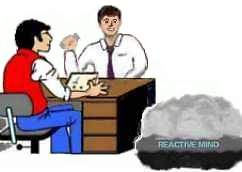Level Two - Outline |
||||
|
On Grade 2 we audit Overts and Withholds. This is done in such a way to make the pc take responsibility for such acts and thus be able to As-is them; it enables him to clean up bad consequences from past overts and withholds. The ability attained from Grade 2 is, "Freedom from hostilities and sufferings in life". One thing that would be an enemy of pc progress would be to audit overts and withholds in such a way as to make the pc feel accused or guilty. It violates Auditor's Code.
If you look at the tone scale you will find a
series of well known emotions on it: Shame, Blame and Regret. You will
find these emotions in the sub-zero area. This is below apathy (+0.05) and
failure (0.0). The gradient approach to this actually already started very early on in the pc's auditing. Let us examine the different techniques in raising the pc's cause level and how it ties in with overts and withholds. ITSA. The first step would be to have the pc discuss his or her feeling of guilt in himself with little or no auditor direction. This you will find is taking place on Grade 0 and Grade 1. It is not looked for or directly intended, but it is bound to come up in session now and then or the pc wouldn't be in-session; it is dealt with as part of any auditing. The next level would be to have the pc discuss his or her guilt feelings about others in a similar manner. Since the Grades below 2 do not push the pc in any such direction, the pc can bring it up at any given moment and the auditor is just there to listen to it and acknowledge and possibly handle it as an out rudiment. Flying of the rudiments, as in beginning of each
session, is a method by which the auditor would pick up any such feelings
and deal with them in the pc without being accusative. Any pushing the pc
down towards Shame, Blame and Regret would be an invalidation under the
Auditor's Code; it would be harmful. But the pc may bring it up and
express any such emotions or incidents at different points and the auditor
would deal with it as an origination or out rudiment at that point. If it
was a straight answer to the process he would simply acknowledge it and go
on with the process as it should take care of it. Grade Two On this background we can approach the subject of cause in a more direct manner. We are up to the next level here. You will find the level 2 processes on a gradient make the pc take more responsibility for his overts and withholds. This is done by repetitive processes and repetitive style processes. Typical questions are: "What have you done?", "What haven't
you done?", "What have you withheld?". Such types of
questions are run on a gradient of responsibility and on many different
subjects, persons and terminals in pc's life. Of course, we can't
summarize all the aspects of Grade 2 in three commands. But when you get
to study the actual processes and run them, you will see how they tie in
with this general concept. Confessional Processing In Confessionals you use prepared forms of questions addressing a certain area of the pc's life and activities. The questions are a list of possible overts pertaining to the pc, like jobs he has held, relationships, etc. - any particular group, interest and dynamic of the pc and his activities in that area. The questions can be very detailed and disrespectful. You need to have a pc, who has already had good case gains or he wouldn't be able to cope with these types of questions. It also takes a new skill level on the part of the auditor to do confessionals successfully. But despite the disrespectful and hard nosed appearance, confessional auditing still is auditing. Done right, it is a very effective way to raise the pc's cause level. It will increase his reach and communication level as well; even his perception, like sight, hearing, etc. may improve. At level 4 we take up another aspect of O/W's. That is under the heading of Justifications. This is part of the non-survival computations and considerations we take up on this level. A Justification is an explaining away of wrong conduct. When most explanations, no matter how far fetched, seem perfectly right to the person making them, it is a Justification. It is an attempt to assert self-rightness and other-wrongness. The central question regarding Justifications would be, 'why something wasn't an overt'. This of course may come up at other times, but at level 4 we take on the subject of Justifications head on as part of irrational or non-survival computations and considerations. As the pc's responsibility level is coming up, more
and more overts and withholds will come to view that need to be 'pulled'
meaning addressed, questioned, confronted and As-is'ed. This means, that
auditing overts and withholds is needed at different levels in order to
get the pc's 'rudiments in with a bang'. You can still not expect a pc on
Grade 2 to be able to see - let alone take responsibility for - any and
all bad deeds he may have done since the beginning of time. Responsibility and O/W's Most of the techniques described in the following applies mainly to confessional auditing. They would not be appropriate to the repetitive style auditing of Grade 2 itself. You wouldn't start on using confessional style techniques on a repetitive process. But it does come into play when we talk session rudiments. The student also needs to have a better understanding of overts and withholds and the mechanisms of the mind coming into play. But keep in mind, repetitive processes are repetitive processes and they are done repetitive style, where the auditor is 'muzzled'. A muzzle being a leather device you typically put over a dogs snout, so he can't bite or eat. Repetitive or muzzled auditing is using TR-0 to 4 and nothing else. TR-3 (repetitive command) is by the book as well as the other TR's. The theory of overts and withholds and how it works in auditing is however valid for repetitive auditing as well as for Confessionals. But since Confessional auditing is somewhat like detective work and an investigation as much as auditing, we often go into explaining the mechanisms of overts and withholds by using examples from Confessional auditing.
|
||||










